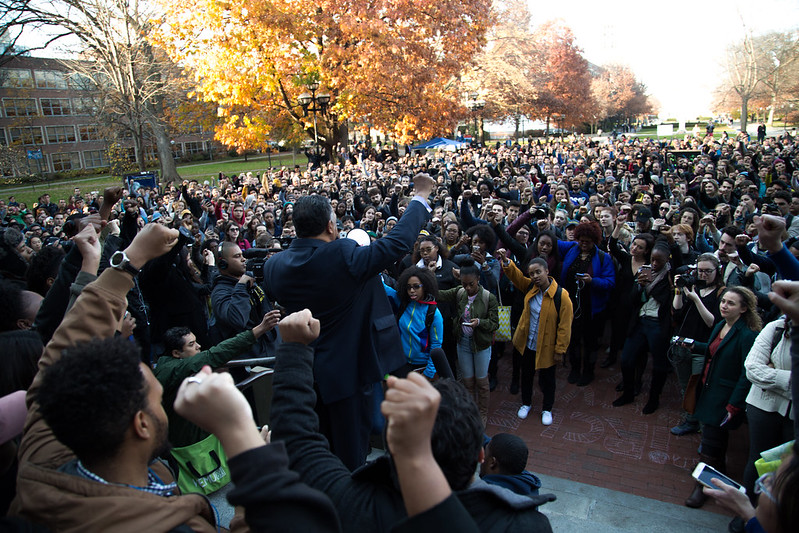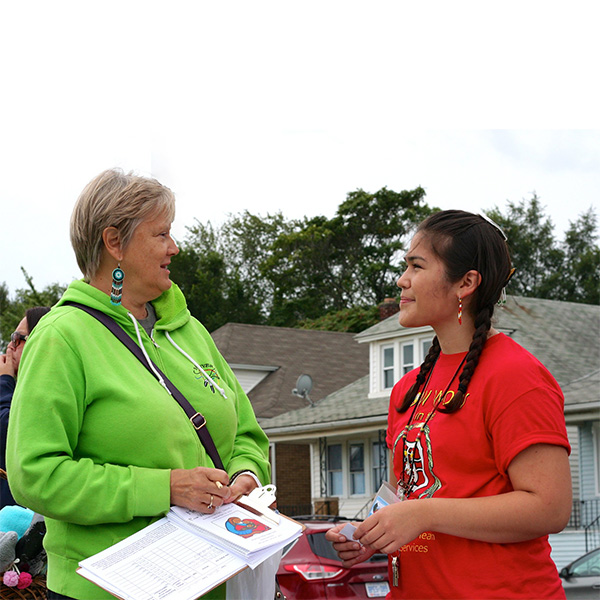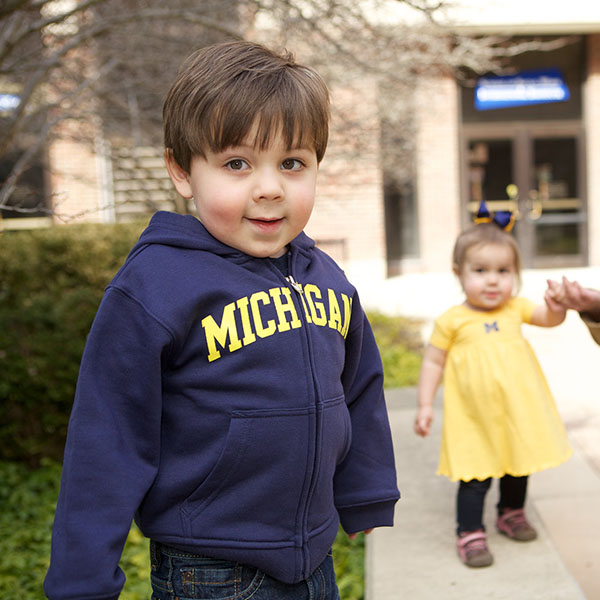Fundraising Initiatives
Opportunities for supporting Michigan Social Work are endless. Your support can make a difference in our ability to support our students, recruit and retain talented faculty, improve our world through innovative research, and go out in communities to make an impact. Below are some ways we’re partnering with donors to create a more equitable and socially just society. Your support can help us to move these projects (and others) forward so the people who most need help get it.

Student Support
Rising educational costs and mounting student debt are serious hurdles for current and future students. At Michigan Social Work, we’re providing crucial scholarship support to students who have the passion, intellect and drive to change the world. Your support of scholarships ensures that all qualified students, regardless of their economic circumstances, can attend without incurring crushing debt.

Centennial Social Justice Impact Fund
Since our founding in 1921, Michigan Social Work has been deeply committed to addressing the most pressing issues facing our society. Today, we find ourselves in the midst of a collective awakening that challenges the history of biased policies and systems that perpetuate racism and inequality in our nation, world and in the social work profession. As the leading school of social work, we have a moral imperative to work toward the elimination of racial, economic and social inequities. The Centennial Social Justice Impact Fund establishes an endowment for perpetual support of the School’s commitment to anti-racism, social justice and social change.

Anti-Racism
Our research and community engagement advances racial equity across a range of social justice issues, including health care, police reform and policies, programs and resources to fight poverty. Current initiatives include a fellowship for students leading anti-racism initiatives, providing mental health and antiracism training to local law enforcement and promoting employment equity for Detroiters.

Community Action
The development of strong, vibrant, and healthy communities has long been a tenet of the social work profession. Our community action initiatives empower residents with the knowledge, resources and capacity to self-direct and self-govern their lives and circumstances. Current faculty community research includes: infant well-being by providing expectant and new fathers with parent education and resources, increasing access to mental health services for families living in rural communities, and developing new approaches to refugee resettlement.

Faculty Support & Research
Michigan Social Work’s faculty are invaluable to U-M as well as the people and communities who are ultimately touched by their teaching, research and leadership. Our researchers collaborate on solutions that address some of the world’s most pressing problems: poverty, lack of economic opportunity and unemployment, health equity for marginalized communities and racial injustice.

Mental Health Intervention
Social Workers are the number one provider of mental health services in the nation. With a state and a nationwide shortage of mental health providers, the School of Social Work is working to develop accessible behavioral health interventions to people in all areas of the state, nation, and world. The interventions we are developing range from creating a safe space and community for Black boys in high school to an online app with professional treatment for depression and anxiety to people in rural areas.

Child Welfare and Child Wellbeing
We are committed to developing systems and programs to improve the lives of young people who are the most vulnerable in today’s society. Our research teams at the School of Social Work evaluate and focus on family issues that impact children, such as poverty, unemployment, mental health, and the abuse of alcohol and other drugs. Other research focuses on strategies to help students realize their potential and become more resilient to the effects of trauma. Our faculty examine parenting behaviors such as physical punishment and parental expressions of emotional warmth and support and their impact on children's aggression, antisocial behavior, anxiety, and depression. In addition, our research analyzes the dynamic interplay of parenting behaviors and their effects on child health and mental health outcomes across socioeconomic contexts, neighborhoods, and cultures.